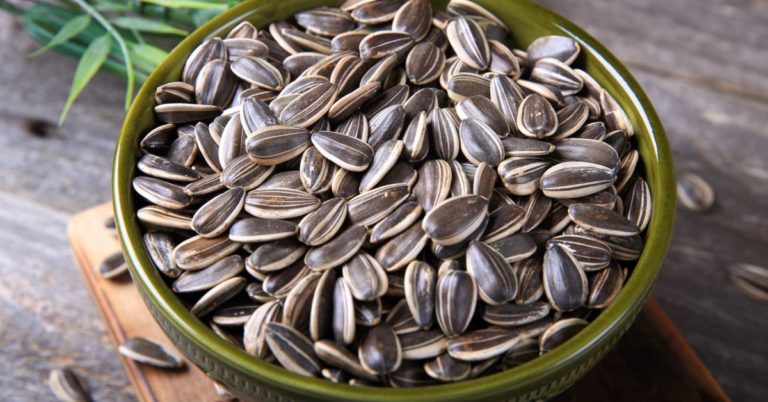Now, since it is estimated that 85% of vitamin D levels come from sunlight, how can the body be supplied with the necessary amount of this vitamin? A simple solution is to eat foods rich in vitamin D.
If that is the case you find yourself in, it will be of great interest to discover how food comes to the rescue.
Importance of a diet rich in vitamin D
Vitamin D guarantees the proper functioning of various processes in the body, such as bone mineralization, the activity of brain cells, and the immune system.
The dark winter days produce vitamin D deficiency in people since the skin does not absorb the sun’s rays, the primary source of this vitamin, which leads to an increase in colds. To reduce this risk, many specialists recommend consuming foods with this vitamin at least once a week.
A study conducted by British scientists at the Queen Mary University of London revealed that if people ate foods rich in calciferol, the number of patients affected by respiratory diseases could be reduced by at least 5%.
What foods are rich in vitamin D?
When solar radiation cannot be taken, food intake, which represents 15% of the vitamin D, becomes essential.
However, some foods can provide a good part of the body’s calciferol requirement if consumed in balanced amounts, such as those mentioned below.
Fish
Among the foods of animal origin that are beneficial to health is fatty fish. In addition to its exquisite flavor, they provide vitamins A, B, and D and minerals. Thanks to this composition, they contribute to good cardiovascular health, improve vision, help maintain bones and thyroid function, among other health benefits.
There are several alternatives between these marine species. To cite an example, with 80 grams of red or white tuna, half of the daily needs of vitamin D are covered. And the best thing is that it can be done without fear of losing the figure.
Other fish options to include in the diet to obtain a good supply of vitamins are mackerel, trout, salmon, sardines, and fish liver oils, which are also an essential source of calciferol.
Dairy products
Concerning dairy products, exclusive products have a higher content of vitamin D fat. In contrast, in semi-skimmed or skimmed products, this is eliminated in their production, which is why they are supplemented with vitamin D.
Undoubtedly, milk is one of the best ways to supply vitamin D to the body several times a day, apart from providing a good dose of calcium, a mineral that is not generated by the body and that is important for the health of the skeleton and the prevention of many diseases.
Nearly all of the United States milk supply is fortified with approximately three mcg (120 IU) of vitamin D per cup, as are plant-based alternatives such as soy milk, milk almond, and oat milk, as well as some yogurts.
Eggs
Egg yolks contain vitamin D, they also have omega 3, and vitamins A, E, and B12, so they provide a protein intake that is a valuable contribution to muscle strength as a source of energy, as reviewed by the magazine ‘Nutrition Today’ after analyzing more than 25 studies on its proteins.
Mushrooms
Mycologist Daniel Reyes, a graduate of the University of Texas, United States, highlights the properties of one of the most common mushrooms, the oyster mushroom (Pleurotus ostreatus), which is rich in vitamin D and antioxidants and speeds up metabolism.
Mushrooms provide some vitamin D. When exposed to ultraviolet light, the proportion of this vitamin content can be enhanced.
List of foods rich in vitamin D
Normally, the most abundant foods in vitamin D are of animal origin, and the following list shows the amount of this vitamin in every 100 grams of these foods:
- Cod liver oil: 252 mcg
- Salmon oil: 100 mcg
- Fresh herring: 23.5 mcg
- Canned sardines in vegetable oil: 40 mcg
- Salmon: 5mcg
- Smoked salmon: 20 mcg
- Raw oysters: 8 mcg
- Chicken liver: 2 mcg
- Beef liver: 1.1 mcg
- Cooked egg: 1.3 mcg
- Fortified milk: 2.45 mcg
- Queso cheddar: 0,32 mcg
- Butter: 1.53mcg
- Yogurt: 0.04mcg
How to consume foods with vitamin D content?
World’s population has this same problem. Here are some suggestions to meet this nutritional need:
- Consume oily fish that are the kings of vitamin D, such as sardines, mackerel, bonito, tuna, eel, herring, red mullet, swordfish, or pomfret, which guarantee a good supply of this vitamin as they are fatty.
- It is convenient to eat whole eggs because it is in the yolk where the fat is found, which is the medium where vitamin D will dissolve so that the body can synthesize it.
- It is preferable to consume whole dairy instead of skimmed or semi-skimmed dairy.
Eating foods high in vitamin D is like giving your body a caress, and it will reward you with good health and energy.

